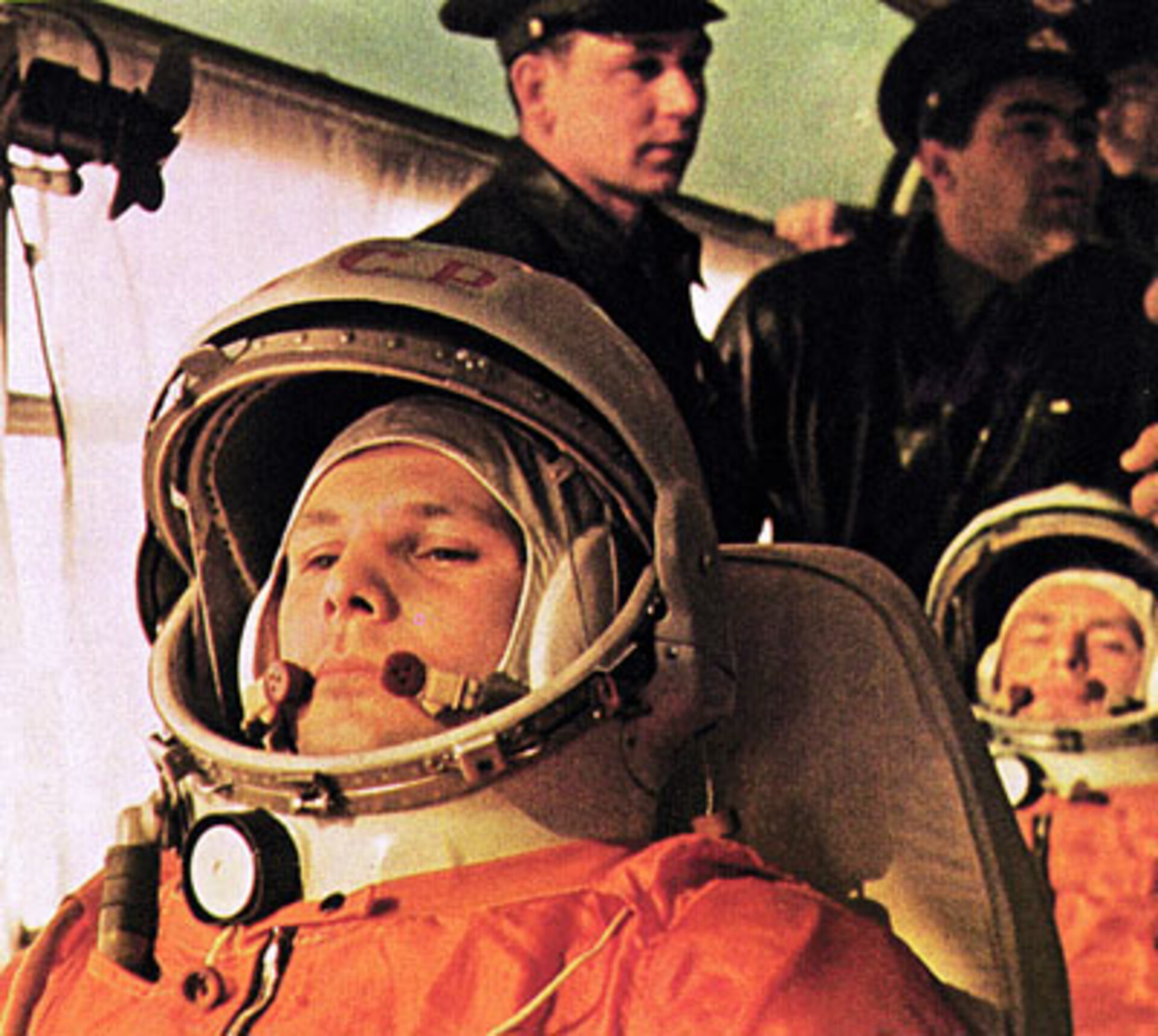Forty years on...
April 12, 1961: at Baikonur at 9.06 am Moscow time, the ignition of an R-7 rocket shattered the peace of a fine spring morning.
The R-7 had been designed to carry a nuclear warhead. Less than four years previously, it had put the world's first artificial satellite into orbit. This time, its cargo was altogether more fragile. A 27-year-old Russian lieutenant called Yuri Gagarin was about to become the first man to orbit the Earth. As the rocket's increasing acceleration drove him deeper into his couch, Gagarin cried "Poyekhali!" - "Let's go". Driven by the fire of almost 250 tonnes of kerosene and liquid oxygen, his Semyorka - "Little Seven", in the affectionate slang of Soviet rocket engineers and the new corps of cosmonauts - hurled him through the darkening blue of the high atmosphere into the black of space. Nine minutes after launch, he was in orbit. "I can see the clouds! I can see everything! It's beautiful!"
Just 108 minutes after his Baikonur lift-off, an exhilarated Gagarin was back on Earth, blinking in the sunshine and grinning at a crowd of suspicious collective farm workers who had seen his parachute come down.
He had made only one orbit, his Vostok capsule controlled entirely from the ground. No one had known how the human body and the human brain would react to weightlessness. No one had really known anything. Now, they knew more.

Within a few years, Russian cosmonauts and their American rivals would learn more still. Almost forty years to the day after Gagarin's flight, a Space Shuttle would launch on a regular mission to an International Space Station built and maintained by former Cold War enemies.
"Yura" - as his friends called him - would have loved all that. But he never lived to see it. He did enjoy the first fruits of his flight, though. Almost from the moment that he landed, Gagarin was a world hero. And it was only partly the work of the Soviet propaganda machine. The man himself had an open charm that impressed everyone who met him, from President to farm hand. He was enthusiastically welcomed wherever he went, by Cold War allies and enemies alike, and he was probably the best ambassador the old Soviet Union ever had.
But he never flew in space again. Despite his unceasing efforts to be given another space assignment, the Soviet government thought him far too valuable to risk. For Gagarin, the rest of his short life was one long anti-climax. He died in March, 1968, killed in an obsolete fighter jet while practising rusty skills that had been neglected during his years of celebrity.
It was a terrible waste, of course. But for all those who followed him into space, he will always be the first. His triumph has already outlived the former Soviet Union. It may well outlive much else besides. It will be a very long time before Yura and his breaking of Earth's bounds are forgotten.




